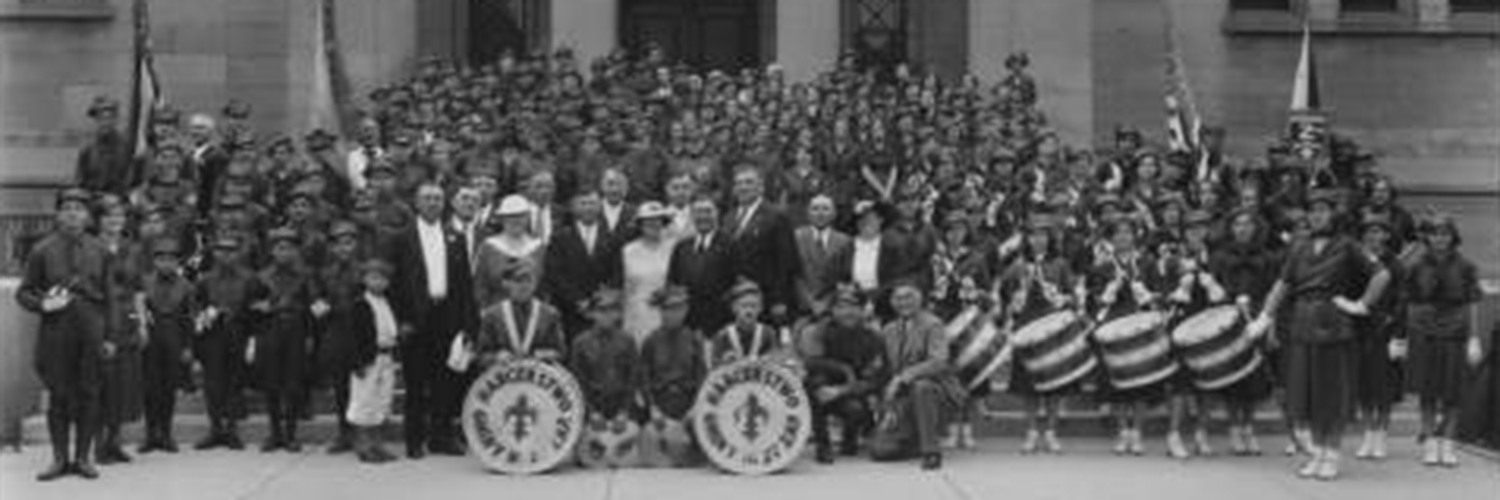
Milwaukee, like every other American city with a large Polish immigration, experienced the rise of numerous voluntary community institutions and organizations. Their aims involved serving the population’s many and varied social and religious needs and interests. The earliest such institutions were the Roman Catholic parishes, beginning with St. Stanislaus Bishop and Martyr parish on 5th and Mitchell Streets in the 1860s. Sixteen more parishes would follow and in every part of Milwaukee where large numbers of Poles resided. Each was the hub of parish societies focused on liturgical service and charitable work, social and musical activities, and athletics. Milwaukee also became the home for many not-for-profit fraternal societies. Their members met regularly in neighborhood halls to socialize and discuss the news of the day. Organized under the principles of representative self-government, these groups served as true schools of democracy and American—and Polish—patriotic feeling. Fraternal lodges of the Chicago-based Polish National Alliance, Polish Roman Catholic Union, and Polish Women’s Alliance developed strong followings in Milwaukee. They were complemented by two locally formed fraternals, the deeply Catholic Polish Association of America and the independent-minded Federation Life Insurance of America. In addition, numerous church-based and secular individuals interested in organizing choral groups and theatrical events formed in the community, not to forget the many Polish-owned businesses that catered heavily to Poles. A unique local organization was the Kosciuszko Guard, originating in 1874 as a unit of the Wisconsin National Guard. The Kwasniewski collection is filled with colorful photos of these many organizations, their members, and their events.
Donald E. Pienkos
Professor Emeritus, Political Science
University of Wisconsin-Milwaukee
